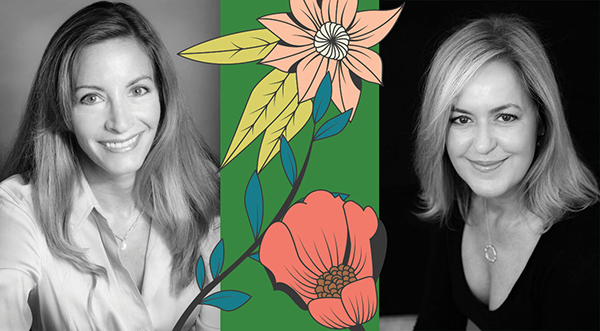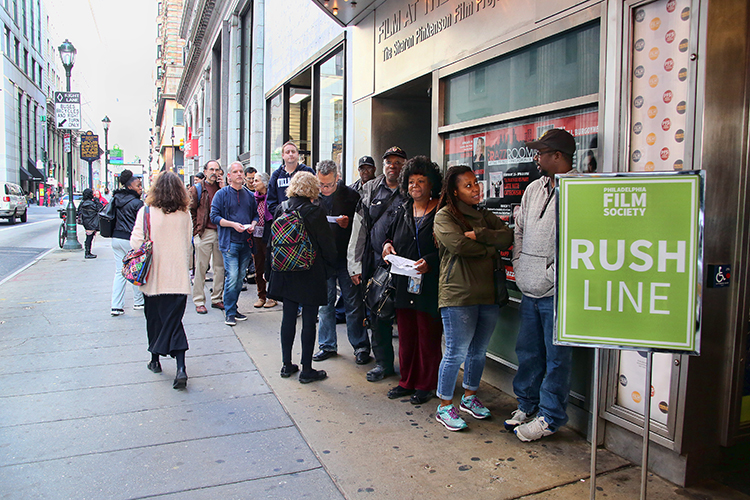Photos courtesy of Philadelphia Environmental Film Festival
Reel to Real
by Nancy Chen
Last year was, again, the hottest year on record.
And yet, at a moment when environmental concerns at home and around the world seem to be mounting, President Donald Trump is following up on his campaign promises to repeal environmental regulations and dismantle Obama-era legislation that mitigates climate change and enforces clean water standards. We are also poised to have the most anti-regulatory Environmental Protection Agency since it was founded in 1970.
Individual citizens are questioning our fundamental relationship to government—what can we (or should we) rely on the government to provide? Is there any other choice but for individual citizens to step up our environmental stewardship?
Enter Philadelphia’s inaugural Environmental Film Festival, set to debut on Earth Day weekend, April 21 through 23 at the Prince Theater. Its founders are dedicated to creating a festival that entertains, educates and—most importantly—inspires action.
“Environmental issues lend themselves to visual images and film, which celebrate the beauty of nature while conveying its fragility,” said PHEFF Executive Director Debra Wolf Goldstein, a native Pennsylvanian who is a land conservation lawyer and consultant for environmental organizations, government agencies and landowners. “There’s still time to make a difference in all environmental areas—for example, climate change. Some of the problems are human made, some of them aren’t. As a society, we can change regulations. If enough people are outraged it leads to change, when individuals organize, put pressure on their lawmakers and make conscientious decisions about what they buy and consume.”
Goldstein and PHEFF Artistic Director Alexandra Drobac Diagne stress that they don’t want audiences to walk away discouraged or depressed, feeling as though the Earth has been irrevocably ruined. They want the festival to motivate and catalyze Philadelphians into taking personal action toward the specific environmental issues they care about.
Hosted at the Prince Theater in Center City, the festival will offer programs that explore environmental challenges of all kinds, while seeking to provide examples of how individuals or organizations have proactively taken action to mitigate environmental harm and address the problems.
During its open submissions period, PHEFF received more than 200 film submissions from 34 countries. At the time of writing, the festival jury (which includes longtime Philadelphia Inquirer film critic Carrie Rickey) is finalizing film selections, aiming to balance the exploration of serious environmental issues with artful appreciation of nature’s beauty—and sense of humor. Over the course of three days, PHEFF will present a selection of 25 international and regional shorts and feature-length films. Each evening will highlight a feature-length film, which in the festival world is defined as 50 minutes or longer. One of these features is “Killing the Colorado,” the 2016 documentary exploring the water shortage that threatens the American West: Its causes are man-made, which hopefully leaves room for man-made solutions. Susan and Alan Raymond, two of the award-winning filmmakers involved, will attend and participate in a post-screening question-and-answer session.
“Before the Flood,” directed by Fisher Stevens, shows narrator Leonardo DiCaprio—who has been an environmental activist for over 20 years and currently serves as the United Nations’ messenger for peace with a focus on climate change—traveling around the world from Miami to the Arctic Circle to speak with scholars and activists about the catastrophic effects of climate change that are starting to be felt across the globe.
A youth-centric block of films on Saturday afternoon is anchored by the feature “Saving My Tomorrow,” which shows young people singing about and discussing the importance of protecting the earth. It’s narrated by Upper Darby native Tina Fey and includes appearances by a dozen other celebrities and musicians.
Among the selected short films is “One Hundred Thousand Beating Hearts,” Peter Byck’s short documentary about Will Harris, a fourth-generation cattle farmer who runs White Oak Pastures in Bluffton, Georgia. Harris narrates how he took great financial risk—going $7.5 million into debt—to totally transform the operations of White Oak Pastures from a typical monocultural industrial cattle farm to a humane, grass-fed operation where sustaining biodiversity and improving quality of life for the animals are top priorities.
On the more artistically experimental end of the spectrum is “Nine Fires,” an excerpt from a feature-length film about New Jersey’s Pine Barrens directed by David Kessler. “Nine Fires” offers a poetic glimpse of what life is like in a remote forest that countless people drive past en route to the Jersey Shore.
“I’ve seen many films lately that are breaking the mold of what is typically considered an ‘environmental film,’” said Kessler, a New Jersey native who studied at the University of the Arts in the 1990s and received a Pew fellowship in 2015. “Like these films, what I have been trying to do—and what I feel that the festival is focused on doing—is presenting work that finds different avenues to engage the viewer with their own environment and the environment at large. I think art can be the strongest way to promote awareness and advocacy, often without the viewer knowing that is its goal before they are absorbed in it and find themselves caring. The environment as a topic for film is only going to get progressively more important, especially as the people in political power seem to have nothing but contempt for it. These films and these discussions around them couldn’t be more vital.”
Goldstein first brought up the idea to launch an environmental film festival in Philadelphia in early 2016. The women did a quick Google search and found that many cities large and small host their own such festivals. Goldstein added, “My sister-in-law lives in the Midwest in a town called Molene, on the border between Iowa and Illinois. It’s the home of the John Deere tractor. When she told me that Molene had an environmental film festival, that was it! I said, ‘If Molene has one, Philly needs to have one!’ There are pressing critical issues concerning our environment and great films being made all over the world that are not being shown in the Philadelphia area.”
Together, Goldstein and Diagne went from thinking, “Someone should really start this in Philly” to realizing that, between the two of them, they had the connections and expertise to launch it themselves.
Goldstein has been working in the environmental field for the last 25 years. She’s helped build trail networks, preserve farms and create nature preserves. She served as vice president of the Fairmount Park Commission and chaired the land use committee of the Philadelphia Commission on Parks and Recreation, where she drafted the city’s ordinance on parkland protection. She and Diagne met because they each have sons who attend the Germantown Friends School.
Diagne brings curatorial art and film industry experience. Originally from Wisconsin, she worked as a curator at Madison Museum of Contemporary Art. She went on to work in Los Angeles for 15 years, first on arthouse and then blockbuster films. Diagne also helped filmmaker James Cameron build his entertainment company. She started on “The Abyss” (1989); worked on “Terminator II” from when the first word was written to the red carpet three years later; and did research for “Titanic” and “Avatar” (2009). Diagne added that “Avatar” is now considered one of the top environmental films of all time for its depiction of the beauty of the natural world. For those who missed the film during its blockbuster run or those who want to experience it again, “Avatar” will cap off the festival as the Sunday night finale screening.
For re
search and for inspiration, the two women attended Washington, D.C.’s Environmental Film Festival last March.
“D.C. is the grandma of all environmental film festivals,” said Goldstein. “It’s celebrating its 25th anniversary. It’s attended by thousands annually and it’s become a year-round program.” The D.C. festival spans two weeks and is organized around issues such as food security or pesticide use. From hearing Goldstein and Diagne speak of the energy of DCEFF, it’s clear that being part of such a convening provides tremendous inspiration—to be surrounded by fellow citizens who are passionately committed to saving and conserving our environment.
Among the Philadelphia festival’s concerns is the need for greater reach and diversity among people who feel the environment is relevant to them. “We have a commitment to reaching audiences who aren’t already tuned in,” said Diagne. As part of PHEFF’s educational outreach, they are pursuing partnerships with Philadelphia community organizations—especially those that work with youth across the city—offering free or discounted tickets and weekend passes to groups that are outside the stereotypical demographics for environmentalists (think white and middle-aged). “We are making sure that the ticket price [$11 general admission/$5 student] isn’t a barrier for anyone who’s interested to come.”
Despite the challenges that exist today, including a presidential administration that appears at best unsympathetic and at worst antagonistic to environmental concerns, Goldstein reiterated, “There’s hope and there’s answers out there—some of these films capture that very poignantly.”



